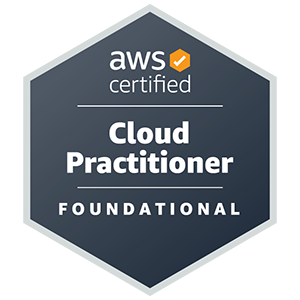4 Big Reasons Why Your Website Needs Cloudflare
06 Dec 2017All the websites I develop and host now use a combination of Cloudflare plus Amazon Web Services (AWS). These combine to give the fastest, most reliable website hosting environment currently available.
Most people only know Cloudflare as DNS management, but it also provides a suite of essential tools for a modern website. These are the best:
1) An SSL Certificate
Starting in late 2016, Chrome and Firefox began showing warnings for pages that had form elements on them but were not delivered to the user's browser securely.
https://developers.google.com/web/updates/2016/10/avoid-not-secure-warn
Cosmetically, these warnings can adversely affect the trust in on-line shopping stores, and may generally reduce the visitor's confidence in a website. Behind the scenes, this decision was about security. An SSL (Secure Sockets Layer) certificate encrypts the traffic between your website and the web browser loading it. Any form data is sent to your website in a way that makes it almost impossible to intercept and read. The main example is credit card numbers, but it also applies to passwords or other data you might not want somebody snooping on. Google and Mozilla made this change to push us all towards a more secure web experience.
Not only does Cloudflare give your site an SSL certificate, it will also alter your website code on the fly so that any pages or files that are not using it will have it added. That means no warnings about insecure content.
Before Cloudflare, getting an SSL for your website was costly (typically hundreds of dollars) and time consuming (each certificate needed a key generated by your web server). Now I can reliably add an SSL certificate to any website quickly and at no cost.
2) Content Delivery Network - SPEED
Did you know Google uses website loading speed as a factor in search ranking?
There are a lot of mysteries about SEO but the impact of website speed on rankings is not one of them. We know without a doubt that Google ranks faster website higher than slower ones. If you are hosting your website on an old co-located server (disclaimer: I did that until I knew about this) then you are sabotaging your site's search ranking. Those old packages you get from Godaddy, Crazy Domains, etc are made to meet a price, not to meet performance.
I increase the speed of every website I host by using a combination of Amazon Web Services auto-scaling & load balancing (more about that in another blog) and Cloudflare's caching & on-the-fly optimisation.
So what exactly is a Content Delivery Network (CDN)? The traditional way of hosting a website is to put it on a computer - usually shared with lots of other sites - and then connect as fast a link as possible to it so people can visit the web sites on it. The further away from the original computer you are, the longer all the website data takes to get to you. That old method works for a few users, but any time a site "goes viral" you will see error messages when the link or the computer suddenly can not cope with the amount of requests.
The CDN way is to take parts of the website and host them all over the world. Cloudflare has dozens of servers located everywhere which act as mini website hosts. Cloudflare takes the most regularly viewed files from your website and makes a copy in every one of its datacenters around the world. Images and files are then sent to the closest computer. Your original web server can run faster for longer because it is not getting as many requests for files. It is an amazing system that, depending on configuration, can make it appear like the website is running off your own local hard drive.
3) Website Optimisation on the Fly and Page Rules - MORE SPEED
Cloudflare can automatically "minify" the files used on your website and optimise images for mobile phones. Minifying means all the whitespace is removed, making files smaller to download. That means the size of your website is smaller and even faster!
I combine this kind of optimisation with Cloudflare's Page Rules so I can get the perfect balance between website updates and speed. Sites with shopping carts or social media content have to be cached in a different way to sites that have more static content. There is a lot of experience involved in tweaking these rules but the results of doing it right are almost magic.
4) Protection
The internet is a dodgy place full of awful people. Cloudflare protects your website by acting as a guard between the internet and your web server. It does this by hiding its IP address from attackers and by defending your website from Distributed Denial of Service (DDosS) attacks.
Protection from DDoS attacks is even more important when Amazon Web Services is used for your hosting. When your website gets more traffic, AWS will scale it automatically to cope with the increased number of visitors. AWS charges for the CPU time used during these periods. I will not go into the details of AWS pricing here (it is expensive and complicated compared to "normal" hosting) but the tl;dr is that it is great for when you have a sudden increase in customers while also being a potential disaster if the darker side of the internet decides to try to take your site down by overloading it with fake visitors. You will be glad Cloudflare is in place when it happens.
As you can see, Cloudflare is much more than simple DNS Management. In fact, the old idea of a website having an IP address doesn't really apply any more. A website delivering blazing fast content through a CDN in multiple locations around the world no longer has a single address. The internet has changed. The old way of doing DNS is like sending faxes in the age of email.
There is a lot more that Cloudflare provides, and they are adding features all the time. Cloudflare sees more internet traffic than Amazon, Wikipedia, Twitter, Instagram and Apple COMBINED.
https://venturebeat.com/2012/07/18/cloudflare-amazon-wikipedia-twitter/
If you are resisting tools like Cloudflare then you are holding your website, and your business, back!
Early this year I used Cloudflare to help MyDNA deal with the sudden load on their website after appearing on A Current Affair. MyDNA had a major advertising and media promotion planned but their WordPress website was failing when placed under extreme load and they could not afford to miss potential customers like happened during the A Current Affair spot. Using the experience gained from setting up Cloudflare for all my GMAC Hosting websites, I was able to modify the WordPress install/template that was running on Amazon Web Services, and set up Cloudflare to deliver a distributed cached version of the website. This meant that the national advertising could continue without interruption and hundreds of thousands of potential customers were able to access the website without slowdown or drop-outs. Could your site handle being on TV like that? You will only know when it happens, and then the opportunity to capitalise on it might be lost forever.
Fortunately, if you are one of my happy website hosting customers then you already have Cloudflare set up. :)








